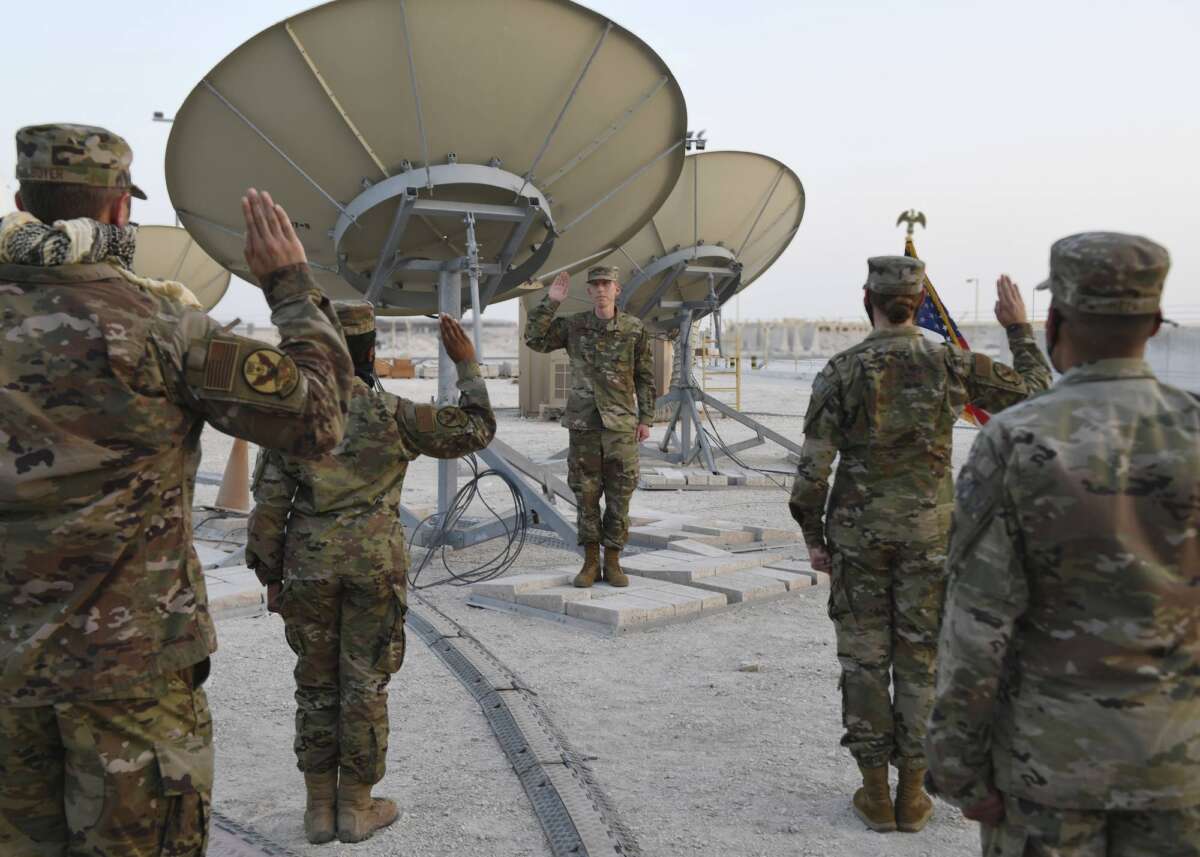Questions arise from Air Force’s decision to move Space Command headquarters to Alabama
In today's Federal Newscast, concerns about the movement of U.S. Space Command headquarters are mounting.
To listen to the Federal Newscast on your phone or mobile device, subscribe in PodcastOne or Apple Podcasts. The best listening experience on desktop can be found using Chrome, Firefox or Safari.
- The General Services Administration is testing out new electric vehicles charging infrastructure as a part of a pilot project in Denver. The pilot at the Denver Federal Center will allow GSA to partner with industry and local utilities to test new clean energy technologies, include the latest in zero-emission vehicle chargers. More than 20% of the federal building’s energy comes from solar, saving more than $45 million in 2008. The Biden administration is looking to reach net-zero carbon emissions across all operations by 2050. The Denver Federal Center has the largest concentration of federal employees outside Washington D.C.
- Intelligence agencies are looking to swap talent with the private sector. The Office of the Director of National Intelligence is developing a Public-Private Talent Exchange program. The program will allow intelligence officers to work in the private sector, and vice versa. ODNI Chief Data Officer Nancy Morgan says officials are still working out the details, and will look to get feedback from industry and others soon. “How can we create a way for IC officers to go spend time in the private sector, and in turn to have partners come in from the private sector, so we learn about each other’s culture, we bring the best and brightest minds to problems, think about this differently.” (Federal News Network)
- The leader of the Senior Executives Association is stepping down. SEA President Bob Corsi announced his resignation after two years in the position. Prior to his role as president, Corsi had a 46-year career in the Air Force, followed by three years on the SEA’s board. An announcement from the association named Executive Director Gregory Brooks as Corsi’s replacement. In that role, Brooks will oversee the SEA’s day-to-day operations. The SEA both represents and cultivates senior executives across the federal government.
- Concerns about the movement of U.S. Space Command headquarters are mounting. During the Trump administration, the Air Force decided to move U.S. Space Command’s permanent headquarters from Colorado to Alabama. However, some lawmakers, particularly those in Colorado, said there was foul play involved. Now, the Government Accountability Office is out with a draft report on the issue. It has not been released publicly, but legislators who have reviewed the document say they are even more concerned about the decision to move the command. Lawmakers are working to suspend the move until more information is available.
- The Air Force is giving its service members a break in order to participate in fertility treatment programs. Airmen and Guardians can now get up to 35 days of permissive temporary duty to meet with doctors and have procedures done at military medical treatment facilities. There are six military medical centers that provide fertility treatments.
- After 20 years of contemplating and failed attempts at standardization, the Coast Guard is finally on a new, more modern financial system. But it wasn’t without headaches, and the service branch is still working through a backlog of invoices for all the data migration it had to do. Plus, the modernization project team had to perform nearly 20,000 manual transactions and spend about $1 billion to keep Coast Guard operations going during the changeover period. But leaders are grateful that the service has been funded each of the last several budget years for IT modernization. (Federal News Network)
- The Coast Guard’s Chief Information Officer is retiring. Rear Adm. David Dermanelian confirmed his retirement during a webinar Wednesday. The Coast Guard says his last day will be in May and Rear Adm. Christopher Bartz will replace him. Dermanelian is Assistant Commandant for C4IT and for one year was also Commander of Coast Guard Cyber Command. Prior to that he was the Director of Training and Exercises at U.S. Cyber Command. He graduated from the Coast Guard Academy in 1988 and has served as an officer in the service ever since. (Federal News Network)
- Agencies using electronic health records could see an easier and more secure way to share patient data. A new health IT system at the Department of Health and Human Services is in the works. The Trusted Exchange Framework and Common Agreement, or “TEFCA,” aims to merge individuals’ health information and create a single point of access for users. After TEFCA’s launch in January, HHS officials are testing several networks in the system. The agency plans to complete testing by the end of this year. (Federal News Network)
- The Biden administration is directing agencies to study barriers to better customer experience. The Office of Management and Budget is directing agencies to reduce the barriers around applying federal benefits and programs. OMB is directing agencies to accurately reflect the time individuals spend gather records need to prove eligibility, as well as speak with agency personnel. Agencies are also being told to investigate “sources of psychological costs,” such as discomfort, stress or anxiety an individual might experience trying to meet this data collection. The guidance stems in part for an executive order President Joe Biden signed last year to improve customer experience in government. (Federal News Network)
- Agencies are teaming up to warn about a dangerous new kind of malware that targets industrial control systems. The Cybersecurity and Infrastructure Security Agency, the Department of Energy, and other agencies issued the alert yesterday. They say the malware can target multiple types of control systems. Hackers could use the tools to disrupt critical devices and system functions. The joint cybersecurity advisory on CISA’s website details detection and mitigation measures organizations can take to defend themselves.
Copyright © 2025 Federal News Network. All rights reserved. This website is not intended for users located within the European Economic Area.
Eric White
Eric White is news anchor and Federal Drive producer at Federal News Network.
Follow @FEDERALNEWSCAST






